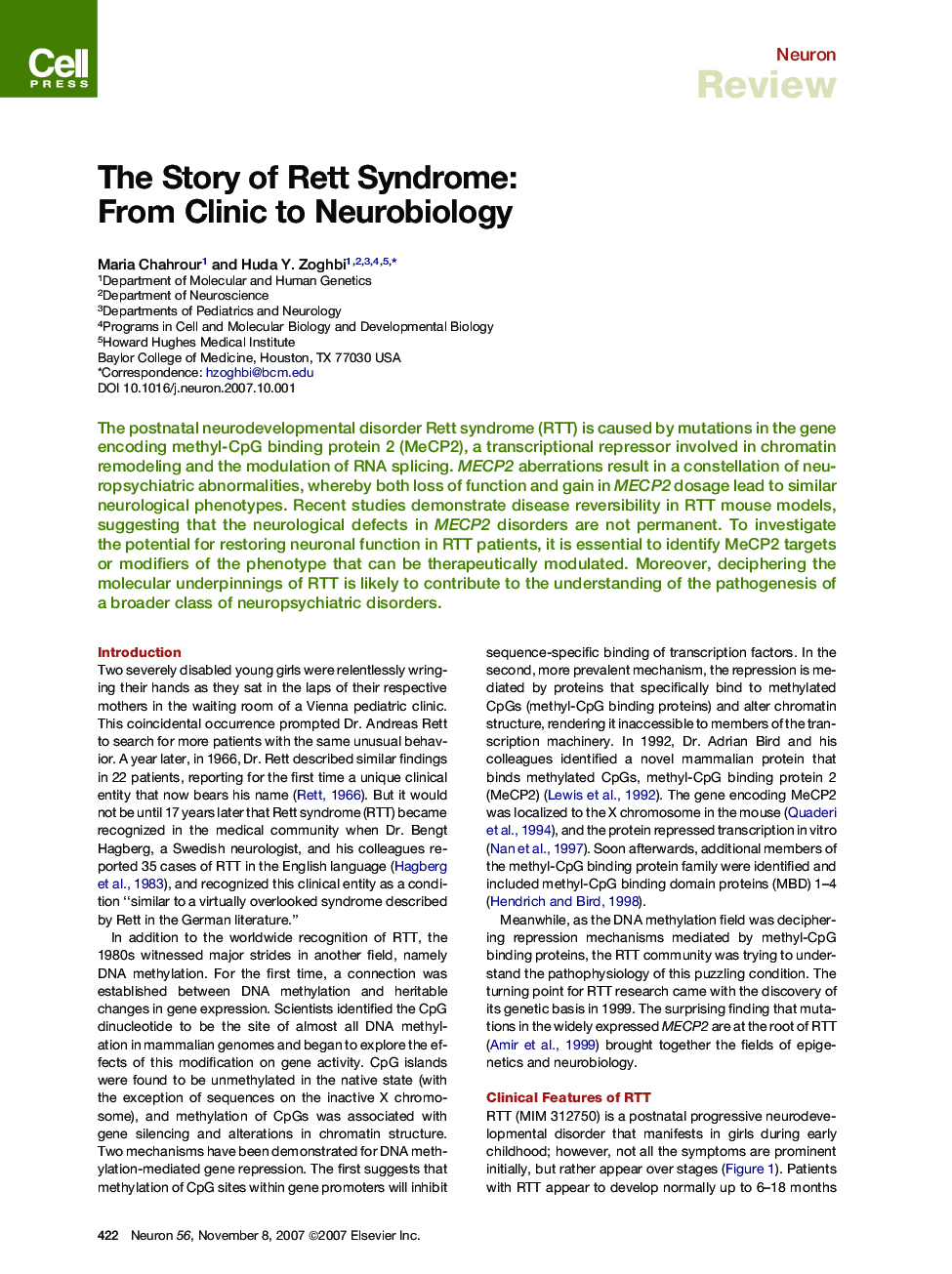| Article ID | Journal | Published Year | Pages | File Type |
|---|---|---|---|---|
| 4322422 | Neuron | 2007 | 16 Pages |
The postnatal neurodevelopmental disorder Rett syndrome (RTT) is caused by mutations in the gene encoding methyl-CpG binding protein 2 (MeCP2), a transcriptional repressor involved in chromatin remodeling and the modulation of RNA splicing. MECP2 aberrations result in a constellation of neuropsychiatric abnormalities, whereby both loss of function and gain in MECP2 dosage lead to similar neurological phenotypes. Recent studies demonstrate disease reversibility in RTT mouse models, suggesting that the neurological defects in MECP2 disorders are not permanent. To investigate the potential for restoring neuronal function in RTT patients, it is essential to identify MeCP2 targets or modifiers of the phenotype that can be therapeutically modulated. Moreover, deciphering the molecular underpinnings of RTT is likely to contribute to the understanding of the pathogenesis of a broader class of neuropsychiatric disorders.
